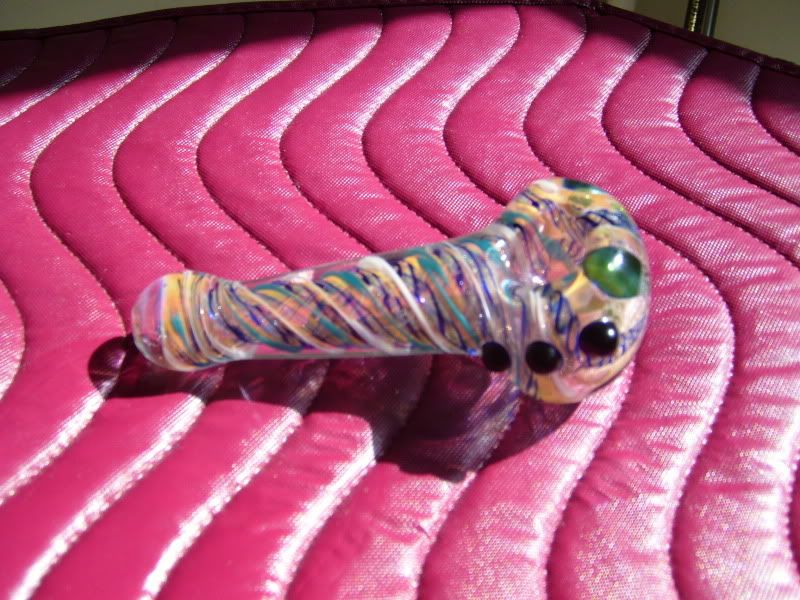The Art of Glass
By Justin Schultz
Hundreds of carefully crafted glass pipes line the shelves and display cases at the Head Shop, in downtown Plattsburgh, NY. Light reflects off of the smooth pieces, and the different colors demand your eyes attention as you look at each pipe. Each piece has a unique color, appearance, and style, which seems to give them their own personalities. These personalities are created by artists who have invested their time and patience to the craft of glass blowing.
“I got in to blowing glass in high school in the late 90s, as a hobby.” said Phil Sanders of Haiku Glass, in Troy, NY. “I began investing a lot of time into creating different pieces, ornaments, decorations, you know?” said Sanders, “Then I began going to conventions and felt it was time to open a shop.”
Sanders’ shop is located in the first floor of a quaint old building on top of a hill overlooking the Hudson River. The store’s shelves are filled with glass ornaments, pipes, decorations, plates, angels, and sex toys. All of the products sold are blown by Sanders on the premises in his workshop behind the main counter. The workshop is cluttered with a number of unfinished projects, in addition to the small kiln, furnaces, and glass blowing tools. It is in small workshops like Sander’s, that many of the glass pipes sold in stores are crafted.
“I work on a number of pieces a day,” said Sanders, “It’s a fun process. It’s an old art and I feel like I am keeping in touch with a tradition. Owning my own shop has made creating art much easier, and I make a profit.”
Selling glass pipes provides glass blowers with an income and an artistic outlet. Unfortunately, owning a “head” shop also makes the shopkeepers targets of the law. Glass pipes are made for smoking tobacco, but they are also applied to marijuana use. The latter is the reason shop owners have been scrutinized by the law. “I’ve had my store visited by agents twice since I opened last year.” says Chris Shawn, owner of the Head Shop. “I’ve had everything in order. They just told me I had to move a display of lighters behind the counter, because supposedly 16 year olds are allowed in the store because we sell T-shirts.”
Small shopkeepers are not the only targets of the law. Actor Tommy Chong was the target of a Federal Investigation for his part in creating and selling glass pipes in 2003. Chong plead guilty to charges and was fined $20,000, sentenced to nine months in prison, forfeited $103,514 in seized cash, and gave up the rights to his domain name.
“I think it’s unfair for head shops to be targeted.” said Michelle Mason, of Plattsburgh.
Mason doesn’t blow pipes or sell them, but she does collect them. “I like to buy pipes at the different shows I go to,” said Mason, “They’re important to me. They’re souvenirs, reminders, you know, of the concert.” It doesn’t take an artists eye to appreciate the talent put into crafting pipes. “I think many people, regardless if they’re using pipes to smoke pot or tobacco, appreciate the differences between pipes,” said Mason.
“I’ve owned my shop for over five years, and I haven’t had any problems with the police, and I hope I never do. If the government outlawed pipes, what would be next? I can’t blow vases or angels anymore?” said Sanders.
“I only sell locally blown pieces,” said Shawn, “If I was shut down, it would affect the local glass artists and the consumers. There are customers for these products, which shows there is a demand. And I’m sure that many customers are using their pipes legally.”
Despite increased pressure from police agencies, glass blowers and head shops continue to succeed. Glass blowers continue to work in the old tradition and find niche markets. “I put my time, my vision, my money, and my breath into my art,” said Sanders, “It’s something I’m going to do for the rest of my life.”

Credit: http://i2.photobucket.com/albums/y28/drunkmoth/S7000457.jpg
No comments:
Post a Comment